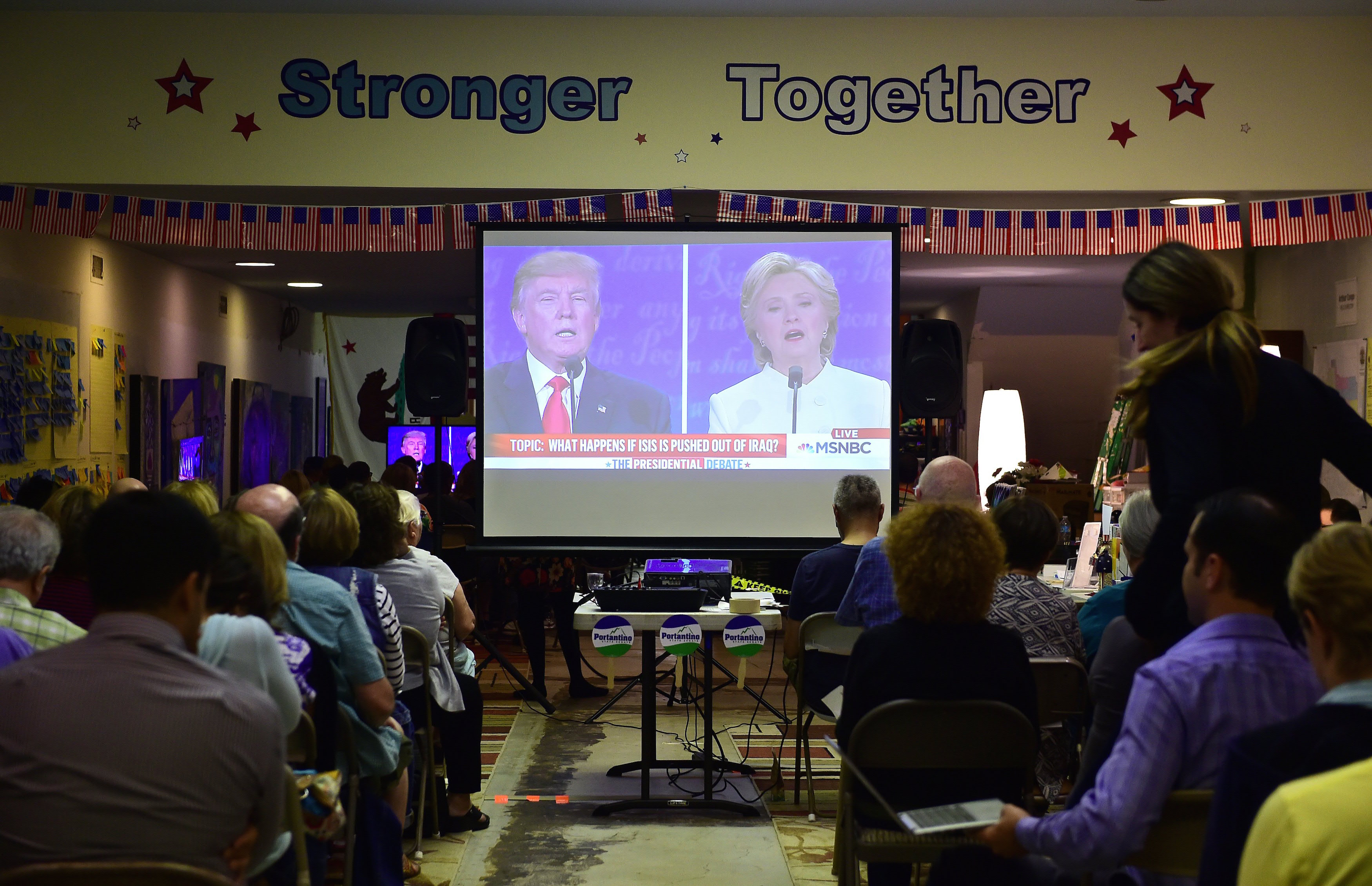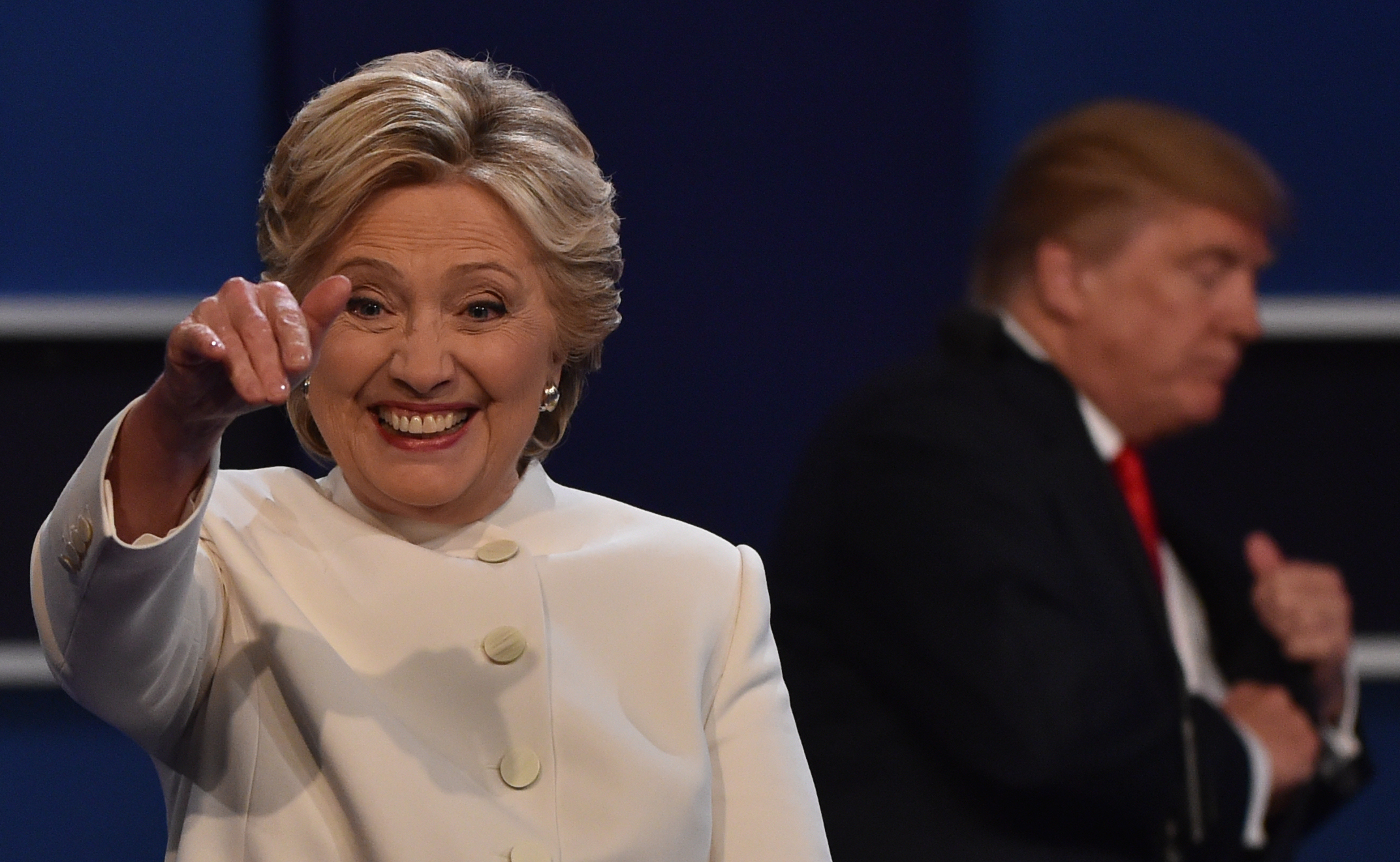
Politics & Society
Debate 3: Trump turns to language of advertising

Clinton v Trump shows the diverse and wondrous perplexity of US politics. Perhaps we should be applauding this.
Published 21 October 2016
America: all human life is there.
If the 4.5 hours Hillary and Donald locked horns over three debates show us anything it is that politics remains an expression of everything that makes us human.
From the good and bad to the mad and crazy, no topic has been off the agenda. From fundamental rights like guns and abortion to trivialities like whether the Emmys are rigged, the debates ranged across all of these and more.
So if the three showdowns proved nothing else they did show that politics States-side is not a dry debate over the technical details of policy, much as Hillary Clinton would like them to be, and that politics is not all show business either, much as Donald Trump would like them to be.
Did the policy wonk or the TV showman win? Did the uninspiring candidate beat the supposedly unfit?

Probably, yes. Clinton was not wounded and Trump was not remade. After three debates, we know as much about them now as we did a month ago.
During that time Clinton has become more electable and Trump less. She currently has a 90 per cent chance of winning. The New York Times says this is like missing a 30-yard field goal in American football: possible but unlikely.
Trump has shown himself incapable of spreading his appeal beyond the sizeable – but not sizeable enough – demographic that he has energised.
Clinton, on the other hand, whilst not necessarily more likeable than she was when the campaign began, is convincing people that she represents a sensible (even sane) alternative.
Her failings are at least bounded and predictable. Trump’s? Who can tell how he might react in an international crisis? What isn’t he prepared to say or do?
The final debate did not kill the Trump campaign. It has though raised more suspicions about his temperament and motives – far more than it did for Clinton’s. It again confirmed how bait-able he is. Is there any criticism he could let go? Is there no punch he can roll with? Has he never seen water on a duck’s back?
Hillary Clinton: Donald Trump "choked" when he met with the Mexican president https://t.co/NIjHaGQyrL #debatenight https://t.co/v5nCm7hjJM
— CNN (@CNN) October 20, 2016
When she told him he ‘choked’ in getting Mexico to pay for his wall, he had to hit back. When she called him ‘Putin’s puppet’ he could not laugh it off. He has no ability to let even the slightest slight slide.
He is a man of apparently zero tolerance and diplomat craft. This is a problematic mixture for anyone contending to be America’s chief diplomat and commander-in-chief.
Hillary can admit mistakes – as she did again on her email shenanigans – Trump cannot. Instead, in each debate, he asserted that he was the victim of some media conspiracy or rigged process or politically correct shibboleth. His flailing electoral fortunes are everyone’s fault except his own.
Unforgivably, he played fast and loose with a cherished symbol of American politics: the peaceful transfer of power. Asked if he would accept the election result on November 8 he said he would keep us all ‘in suspense’. This Apprentice-shtick is wearing pretty thin.
Even a maverick like Trump has some obligation to recognise basic political etiquette. Even the Terminator – a character Trump has come to resemble – was capable of adapting to reality.

Clinton remains wonkish and uninspiring – but that is all she needs to do with less than three weeks to go. She does not and seemingly cannot do the ‘vision thing’. Instead, she promises to work hard for hard-working families.
This line doesn’t inspire but it doesn’t alienate either. Trump’s ability to alienate women, to take just one group, is effortless – and it has and will cost him votes.
Both attempted to posture on points of principle. Trump went with guns, Clinton with abortion. I think Clinton won this exchange. Her ‘pro-choice’ position has been developed over decades at the front line of left-wing politics.
Trump’s conversion to a ‘pro-life’ position is much less compelling and his defence of it less fluent. They both found themselves, however, adopting a similar approach: he wants to protect children by limiting abortion rights; she wants to protect children by limiting gun rights.
He wants government out of the gun cabinet; she wants government out of women’s wombs. That irony was lost on both of them.

Politics & Society
Debate 3: Trump turns to language of advertising
On foreign policy, Trump’s gambit was to assert his strength and to ridicule her weakness. Across the debates he has elevated the benefits of his gut instinct over her poor intellectual judgement.
Iraq, Libya, Syria – all would be well here if US strength has been appropriately deployed. The wishy-washy weakness of President Obama and his Secretary Clinton created ISIS, he said. He would kill it.
Her comeback was a good one: while Trump was appearing in reality TV shows, she was engineering the demise of Osama bin Laden.
In 2012, President Obama campaigned on the slogan ‘Bin Laden is Dead. General Motors is alive!’ Clinton is doing the same in 2016 and Trump has not been able to neutralise it on the debate stage.
They were petty, they were silly, they attempted principled debate and gutter politics. In short, Hillary and Donald captured the wondrous and perplexing diversity of American politics.
Perhaps we should complain less and applaud more the ability of the United States to capture some of the messiness and frustration of what it is to be human.
Banner: People watch the third Presidential debate at the United Democratic headquarters in Pasadena, California. Picture: Frederic J. Brown/AFP/Getty Images
This article has been co-published with the University of Melbourne’s Election Watch and the Herald Sun.